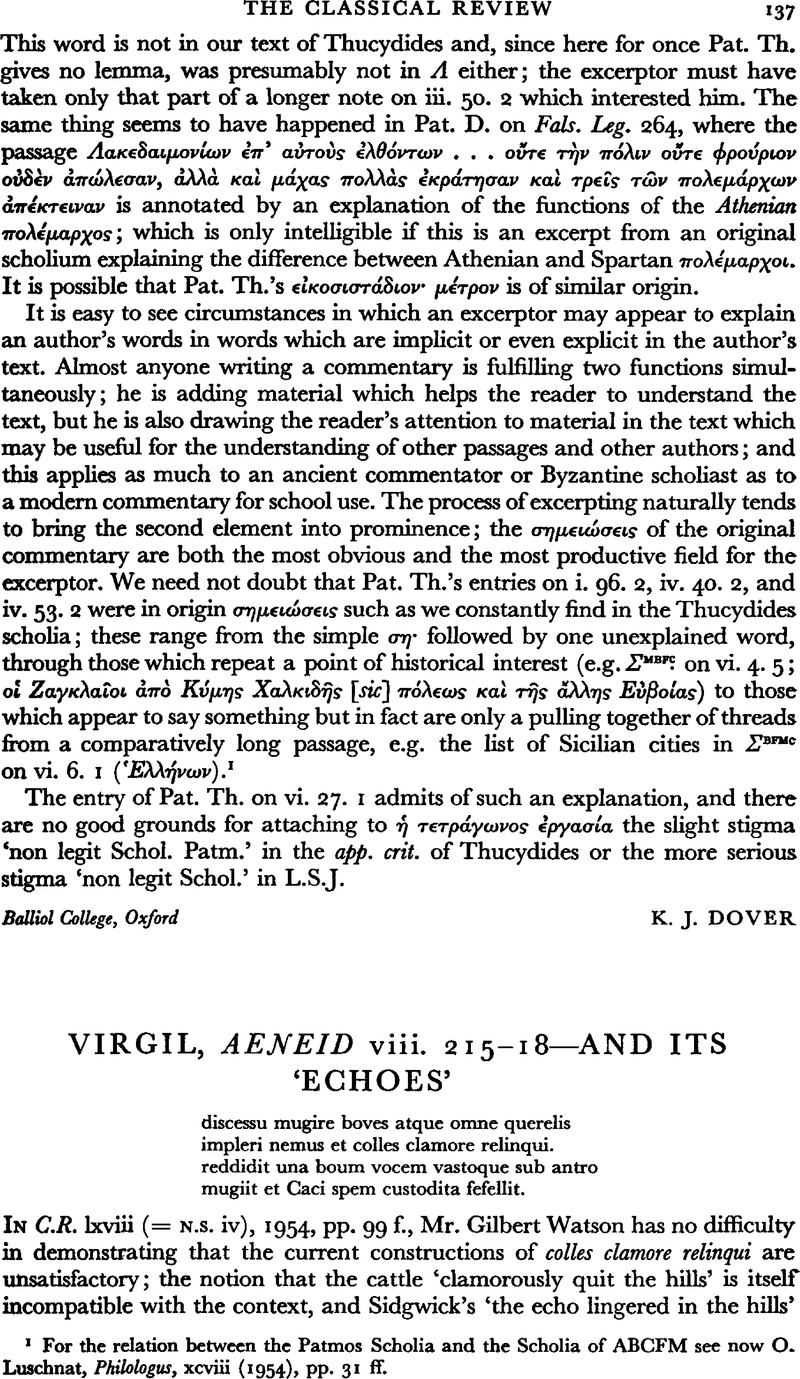No CrossRef data available.
Article contents
Virgil, Aeneid viii. 215–18—and its ‘echoes’
Published online by Cambridge University Press: 13 February 2009
Abstract

- Type
- Review Article
- Information
- Copyright
- Copyright © The Classical Association 1955
References
1 Similarly Val. Fl. iv. 71 f. (repercussion of the clamores of Prometheus) ‘congeminant amnes rupesque fragorem Caucaseae.’
2 Naturally Taurea can perceive ‘that he is within earshot of the enemy’; but to make him thereupon perceive that he is uttering a challenge is to make the challenge seem unnaturally automatic; and clamare could hardly do duty for clamare posse.
3 A decent modicum of ignorance is in these matters not so much a help as a necessity. Those who already ‘know all the answers’ are thereby precluded from solving the problems. The basis of this whole note was merely a couple of careful bets.


